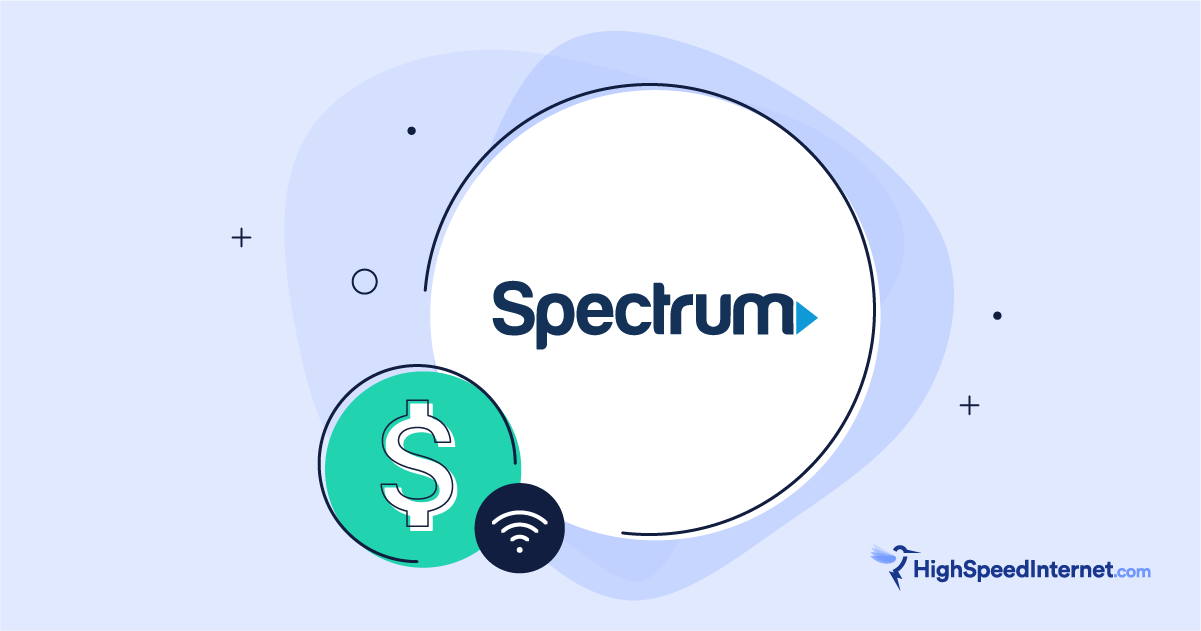Are you paying more for internet than you expected?
Some providers still hike prices after 12 or 24 months
Feb 6, 2026 | Share
Brand Guides, Internet Buying Guides
Home internet service is changing for the better. Customers have more choices, reliability is improving, and speeds are faster than ever. But do all these changes mean the end of surprise increases on customer bills?
We analyzed our database of plans from major providers across the country and read all the fine print (so you don’t have to). We hoped to find that providers are charging the same rates they advertise. It’s true for some providers, but for most we found the opposite.
Many major providers still get you in the door with a promo price, then increase your bill after the first year or two of service and tack on fees (which sometimes increase without warning). You could call in and try to get a new promo rate, but sometimes your only choice is to switch providers.
On this page:
Price hikes to expect | Best straightforward plans | Best plans with promo rates | What to expect from each provider | Our verdict | Price increase methodology | FAQ
On this page:
What is an internet price increase?
A price increase is when your monthly internet bill is more than you agreed to pay, and there’s no way to get out of it.
Read more about our price increase methodology.
Tired of price increases on internet service?
Start shopping for a better price by entering your zip code below.
Price increases to expect on your internet bill
We love it when the bottom line on your internet bill matches the advertised price of that plan—and it is possible. We’ve seen it from small, local providers like UTOPIA and it used to be true with T-Mobile 5G Home Internet. But most providers add taxes and fees on top of advertised prices, and some jack up monthly rates after a certain promotional period.
That difference between a promo rate and a standard rate can be as little as $10 per month, but we found increases of $65 to $70 per month from some providers. That’s a massive hit!
The best internet plans without price increases
Some of the best internet providers out there have straightforward pricing with no weird fees, no required contracts or cancellation fees, and no funny business with promotional pricing. Often, these are fiber or 5G fixed wireless internet companies taking on established cable internet providers.
Check out the following home internet options if you’re looking to avoid scheduled price hikes and required contracts.
| Provider | Lowest plan price | Speeds up to |
|---|---|---|

| $50/mo.* w/ AutoPay, plus taxes & fees. | 498Mbps |
| $55.00/mo.† | 300Mbps | |
|
| $35/mo.‡ w/ AutoPay and select 5G mobile plans | 300Mbps |
|
| $50.00/mo.# | 100Mbps |
Prices as of 02/06/2026. Offers and availability may vary by location and are subject to change. See disclaimers.
The best internet plans with promotional rates (and price increases down the line)
The following providers have great rates for new customers, but your price goes up after a promotional period. We’ve listed the basics, but every plan is different, so read your broadband nutrition label carefully before signing up for a plan.
Prices as of 01/26/2026. Offers and availability may vary by location and are subject to change. See disclaimers.
What to expect from each big provider
Every internet provider handles billing a little differently, and your price and fees depend on factors like your exact address and when you signed up for service. That said, here’s a quick rundown of what you can expect from the biggest players:
- Astound: Big post-promo hikes plus an Internet Infrastructure Fee or Network Access and Maintenance Fee (Up to $12.97/mo.)
- AT&T: The advertised price is what you really pay (before taxes and fees)
- Breezeline: Wi-Fi and equipment charges after two years, plus a fee for the Home Wire Service Plan ($9.99/mo.)
- CenturyLink: Simple pricing before taxes, plus a possible equipment fee
- Cox: Price hikes after two years, but they’re itty bitty (and no contracts are required)
- Frontier: Confusing DSL plans, but enjoy good deals on fiber internet
- Metronet: Post-promo price hikes after a year plus a mandatory Tech Assure Fee ($12.95/mo.)
- Optimum: Cheap starting rates with small price hikes after a year, unless you can score a multi-year price lock
- Quantum Fiber: Pay only quoted prices (before taxes)
- Spectrum: High post-promo prices and a weird WiFi Access Fee ($5.00–$7.00/mo.)
- T-Mobile 5G Home Internet: Prices that start low and stay low (taxes and fees no longer included)
- Verizon: Free Wi-Fi gear and price guarantees
- Viasat: Contracts and post-promo price hikes on some plans plus an Administrative Cost Recovery Fee ($1.23/mo.)
- Xfinity: Great promo rates with prices that go up after 12 months, plus possible equipment lease fees
Our verdict: Choose stable pricing if you can
You deserve to pay the price you’re quoted when you sign up for internet service, and for that price to be stable over time.
The best nationwide providers with straightforward pricing are:
Smaller providers that don’t have big scheduled price hikes include:
If you can get one of the providers above at your address, we recommend it! Just be aware any provider could raise prices at any time, so keep an eye on your monthly bill even if you’re enrolled in autopay.
Price increase methodology
Our definition of a price increase is based on dozens of conversations with real customers who pay for home internet service. We also keep an eagle eye on our own customer reviews and forums around the web. That’s how we arrived at our definition: A price increase is when your monthly internet bill is higher than what you agreed to pay, and there’s no way to get out of it.
The following are some examples of price increases:
- When your provider raises prices on plans across the board
- When your provider starts you on a cheap promotional rate but raises prices to an undisclosed standard rate later on
- When your provider increases fee amounts or adds mandatory fees after you sign up
The first kind of price increase is hard to predict, and almost all providers reserve the right to increase prices any time. However, some providers hike prices a lot more often than others.
Next up, promo rate price hikes. We like low rates, but we don’t like how these arrangements feel like nasty surprises down the line. Huge jumps are even worse when providers require autopay, require contracts that exceed the length of the promotion, or make it hard to call in and negotiate for a better price.
Finally, let’s talk about fees. They’re already a pain, and increases to fees (rather than regular prices) can seem sneaky. These price hikes usually amount to only a few dollars at a time, which is nice, but you may not notice them unless you check your bill every month.
The onus is ultimately on customers to read all the fine print, and we get that. But we believe customers deserve pricing transparency. The best providers out there have proved it’s possible.
What we don’t count as a price increase (but you should still know about)
There are a number of ways your bill could be different from the big, friendly price you see in ads. We aren’t technically counting these as price increases for this article because they’re either optional or disclosed on broadband nutrition labels. They include the following:
- So-called junk fees (they’re required on the label)
- Wi-Fi equipment rental fees (because you can avoid them by buying your own modem and router)
- Taxes (because they vary by jurisdiction and are outside the providers’ control)
- Penalties for opting out of paperless bill fees and autopay (sometimes called discounts for signing up)
- Credit card processing fees (because you can get out of them by using a direct debit on your bank account)
We love it when the advertised price is the price you really pay, no find print required. On the other hand, some economists and trade group representatives make the argument that itemized bills are more transparent than simplified single-price bills.
We’ll leave final judgment up to you—it’s your household budget on the line, afterall. Our role is to make sure you have all the info you need to choose an internet service that meets your needs.
FAQ about internet price increases
Why are my internet prices going up?
Can my internet provider raise my bill?
How can I get an internet plan without price hikes?
How do I switch internet providers after a price increase?
What can I do when my internet price goes up?
Disclaimers
The best internet plans without price increases
* T-Mobile
Guarantee exclusions like taxes and fees apply.
† AT&T
Above pricing is after $10/mo Autopay & Paperless bill discount with a debit card or bank account; if using a credit card, then price is $5/mo more. Pricing includes Equipment Fee. Up to $99 install fee may apply, plus tax where applicable.
‡ Verizon
Price per month with Auto Pay & without select 5G mobile plans.
§ Google Fiber
Plus taxes and fees. Upload/download speed and device streaming claims are based on maximum wired speeds. Actual Internet speeds are not guaranteed and may vary based on factors such as hardware and software limitations, latency, packet loss, etc.
║ Starlink
Plus hardware, shipping & handling fees, and tax. Fully refundable. Depending on location, some orders may take 2 weeks or more to fulfill.
# Centurylink
Service is not available everywhere. Offer is available to qualifying customers only. Limited time offer. Paperless billing required. Additional taxes, fees, and surcharges apply.
The best internet plans with promotional rates (and price increases down the line)
* Spectrum
Limited time offer; subject to change; new residential customers only (no Spectrum services within past 30 days) and in good standing with Spectrum. Taxes and fees extra in select states. SPECTRUM INTERNET: Standard rates apply after promo period. Additional charge for installation. Speeds based on wired connection. Actual speeds (including wireless) vary and are not guaranteed. Gig capable modem required for Gig speed. For a list of Gig capable modems, visit spectrum.net/modem. Services subject to all applicable service terms and conditions, subject to change. Not available in all areas. Restrictions apply.
† Frontier
w/ Auto Pay & Paperless Bill per month for 24 mos. One-time charge on disconnect applies.
‡ Cox
Available in select markets only. No annual contract or cancellation fees.
§ Xfinity
For 12 month, no term contract. Taxes and equipment not included. Incl. up to $10/mo. auto-pay & paperless bill discount. Pricing and plan names may vary by region.
║ Optimum
w/ $10/mo. elig. Auto Pay & Paperless Bill. Wired connection. WiFi speeds may vary. Not available in all areas. Disney+, Hulu Bundle Basic avail. w/ 500 Mbps Internet and above. After promo period, plan auto-renews at $10.99/mo. Offer will not replace existing subscriptions. Add’l terms apply. Unlimited Mobile line w/ Promo Code HEYITSFREE. Plus taxes & fees. Savings via monthly bill credits. Elig. cust. only. Paperless Bill & Auto Pay req’d. Terms Apply.
Author - Chili Palmer
Chili Palmer covers home tech services, with a special focus on understanding what families need and how they can stay connected on a budget. She handles internet access and affordability, breaking news, mobile services, and consumer trends. Chili’s work as a writer, reporter, and editor has appeared in publications including Telecompetitor, Utah Business, Idaho Business Review, Benton Institute for Broadband & Society, and Switchful.com.
Editor - Jessica Brooksby
Jessica loves bringing her passion for the written word and her love of tech into one space at HighSpeedInternet.com. She works with the team’s writers to revise strong, user-focused content so every reader can find the tech that works for them. Jessica has a bachelor’s degree in English from Utah Valley University and seven years of creative and editorial experience. Outside of work, she spends her time gaming, reading, painting, and buying an excessive amount of Legend of Zelda merchandise.




